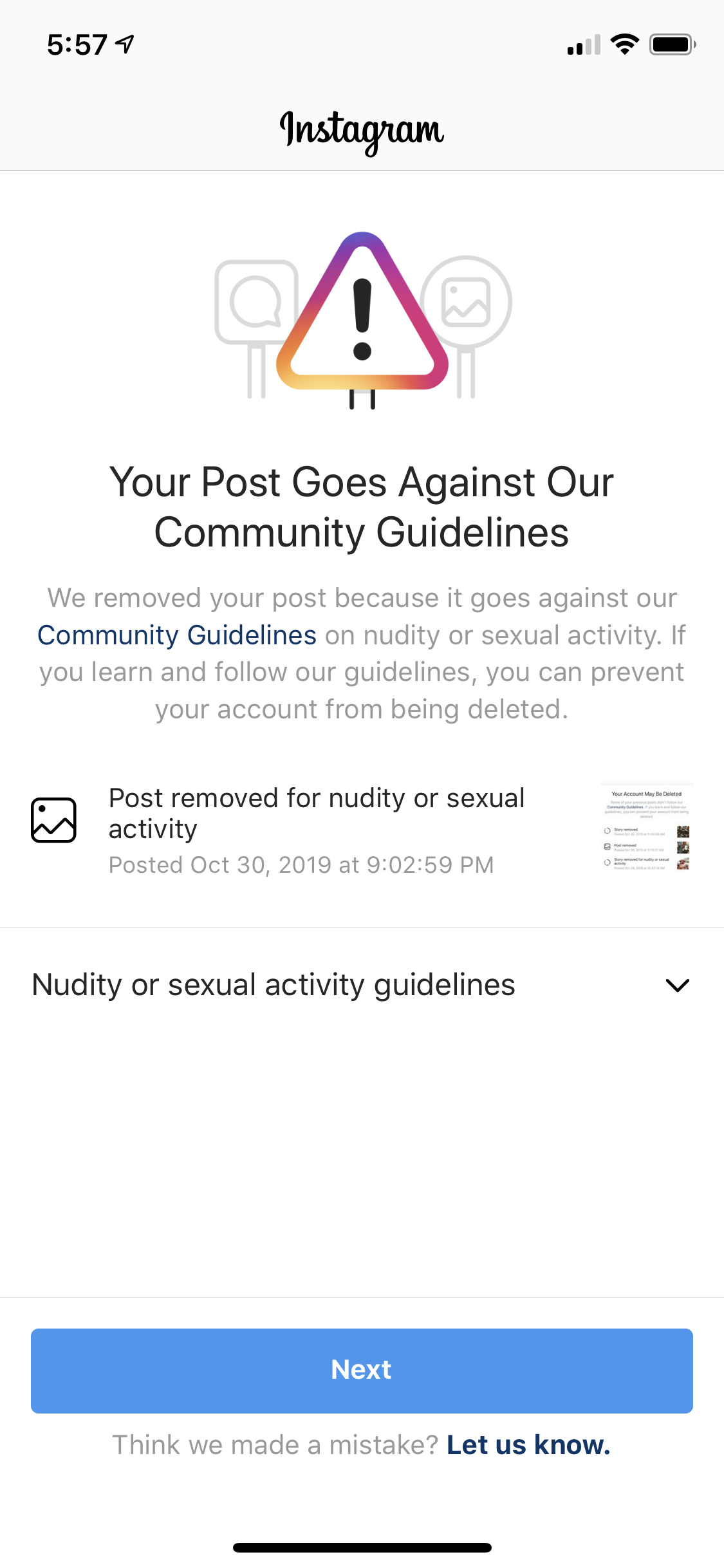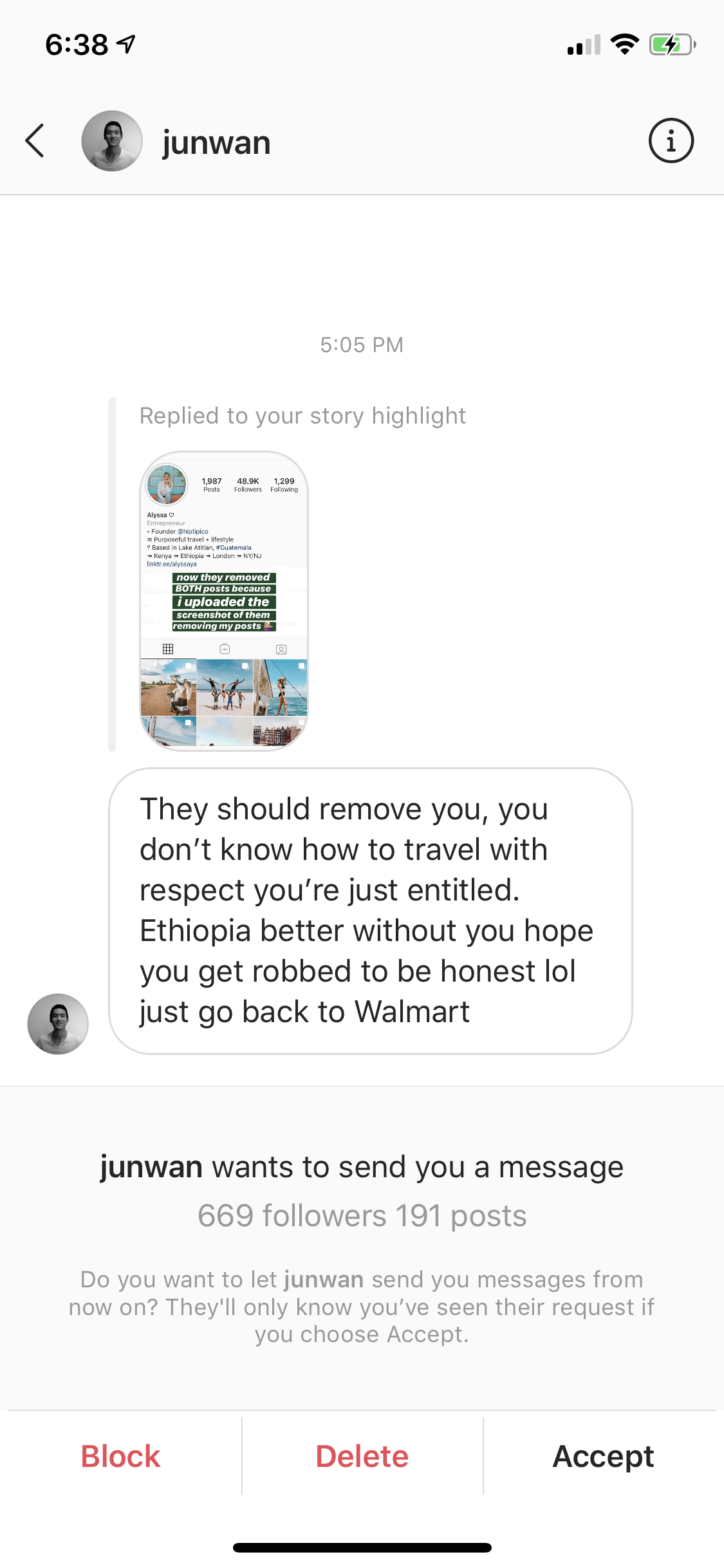How I got sent to Instagram jail!
On November 5, 2019 I woke up to my Instagram account being deactivated. I instantly knew because I was logged out and could not log back in. I also knew from the numerous messages of people sending me screen shots of my account with no posts, no followers, nothing.
I have been posting since 2012 and had 49k followers linked to my business. So, I was really hoping to get it reinstated. I found a contact page and submitted my request for them to reactivate my account. This was immediately followed by an email giving me more instructions. I was given a code and had to take a picture of myself holding a blank piece of paper with that code. Of course, they delete your account in the middle of the night. So you wake up all frantic and to take this picture. Just like a mugshot.
One week prior to my jail sentence, I received a few account warnings saying that my content was going against the community guidelines. My posts were removed, my stories were taken down. Instagram warned me my account might be deleted. I submitted a review for all of these warning. Because I knew my posts needed to be seen. To give some background. I am not a bikini model or radical political group. I am a small business owner posting about responsible travel.
One month prior, I visited the Omo Valley in Ethiopia to learn about the indigenous ethnic groups. I traveled with a local tour company from Jinka and explored the complexities of responsible travel in the region. My local contact and I traveled for 2 weeks together discussing topics including tourism, religion, rituals, technology etc. I also had the opportunity to meet with indigenous tribe leaders, chiefs, families and other guides in the tourism industry. I wrote blogs on my personal experience, with advice on how to travel with a local tour company and ways to be more thoughtful when visiting these ethnic groups.
I described my interaction with the Mursi tribe, one of the most remote and “least-friendly” of the indigenous groups. I posted an interview with the Konso King describing how he leads his ethnic tribe in a modern world and wants more people to know about their lifestyle. I talked about how the women were interested in my body, wanted my bra and were curious about my hair color. I even described what other tourists were doing to disrespect the culture, invade their privacy and disregard their rituals. I posted people as they were - without much clothing, with AK47s and in their natural setting. Nothing was overtly sexual, distasteful or fabricated. I blurred out nipples and censored certain areas.
I guess I should back up a little more to give some additional context. Eight years ago, I moved to rural Guatemala and founded an ethical fashion brand alongside female artisans. I built a sustainable social business with a mission based on indigenous rights, cultural preservation and local empowerment. My local staff and I began hosting ethical tours to allow travelers to meet our artisan partners and learn about the indigenous Maya culture. Our immersion experiences include weaving lessons, home-stays and village excursions.
I was interested to see how tourism and indigenous cultures blended in other parts of the world. So, I went to explore, learn and gain a new perspective alongside a local tour company in Ethiopia! My focus was learning about the interworking of tourism and indigenous groups but also learning about humanity. All of our ancestors can be traced back to Ethiopia and Addis Ababa is the hub for the entire region of Africa.
Upon publishing my first Instagram post from Ethiopia, the warnings began. People were reporting my posts for nudity and sexual content. And people were reporting me just to report me. I received hate messages, judgmental comments and wild accusations about my travels.
I was having three different types of conversations in my comments and my inbox.
90% of what I received was gratitude. I received a lot of positive messages and people thanking me for my posts. These people cared about learning about a different culture and seeing images from another part of the world that they might not ever get to see. They cared about the authenticity of my content and the soul behind my posts.
5% of the comments or messages were all about me being white and privileged. “The white savior complex” - I’ve talked about this repeatedly over the years on my page. As a white woman working in Guatemala, this was not a new accusation. White saviorism is essentially western people going to “fix” the problems of other nations or people of color without understanding their actual desires or real situation. Actually, I did not go to save anyone, push my culture or share my religious beliefs. I was not on a mission trip, nor was I associated with any church, NGO, or project. And I had the permission of a local Ethiopian agency and indigenous chief to share these stories. I tried to respond these comments as calmly as possible. But then I was just called too defensive and to “check my privilege”.
4% of the backlash was focus on “othering”. Othering is a popular term used to describe when someone is classifying a group as ‘not one of us’. Many times there is a clear level of inequality between group identities. And, apparently because I’m white, the focal point of my images and doing the storytelling from my perspective my content is ‘othering’, degrading, and my word choice is wrong.
1% was pure hate. I received messages hoping that I got hurt, robbed and was told to “go back to Walmart”. Surprise surprise when I reported this activity to Instagram they said it did not go against their community guidelines. Wishing someone physical harm is allowed. But being a white woman in Africa is not.
I did my best to answer all messages and comments. To explain my purpose for traveling, to direct people to actually read my blog. But whenever I suggested a “hater” to click the link and read my blog they ALWAYS said NO followed by a nasty reply such as “you’re entitled and your photos are enough”.
In my blog I talked about my privilege, my background working with indigenous groups and my desire to provide information on how to travel with more respect in the Omo Valley. I also directed people to travel with local tour companies and included the personal information of my local Ethiopian contacts (who read and support my blogs!) None of that mattered, my appearance was enough to discredit me. Having my Master’s in Economic from Georgetown’s School of Foreign Service in not in my Instagram bio. But maybe it should have been.
Even in writing this. I already know what people are going to say about my “first world problems” and my privilege. And they are probably even going to find joy in the fact that my instagram got deleted and that finally something didn’t come easy for me.
To be clear, I am not complaining that instagram took away my account. I am not complaining in hopes of getting people to “agree” with me. This is simply my story and my experience.
There is a whole world out there of people who don’t wear clothes, who do not sexualize nudity and have a different way of life. Those posts got blocked. While hyper-sexualized ads and overtly degrading content does not.
There is a whole world out there that the instagram algorithm doesn’t show us. And a whole lot of keyboard warriors passing judgement and bullying others without consequence.
My account of 10 years, talking about indigenous rights, responsible travel and using instagram as my platform to spread positivity . . . vanished overnight.
Account Recovered!
Be thoughtful. Stay kind.
♡ Alyssa
Follow along on instagram (@alyssaya) for more about Guatemala, ethical fashion, responsible travel and globally minded topics!
Thanks for reading. And as always . . . Be thoughtful. Stay kind.
♡ Alyssa
Follow along on instagram (@alyssaya) for more about Guatemala, ethical fashion, responsible travel and globally minded topics!

















